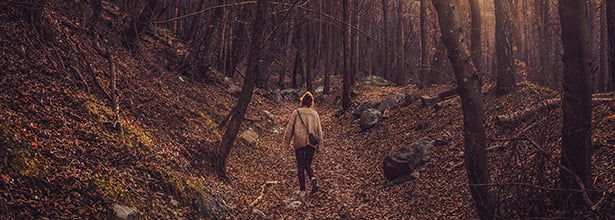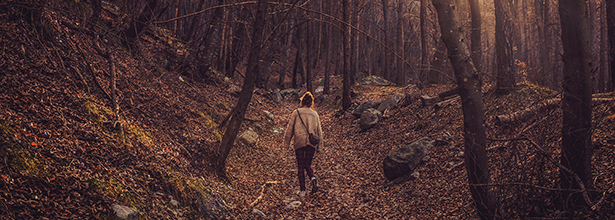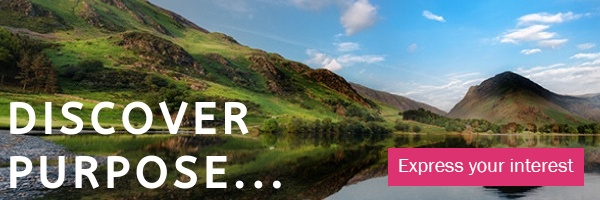
There are many practical reasons why we spend our working lives in offices, meeting and conference rooms, but it doesn’t mean it’s doing us any good.
Sitting in a typical business environment has been proven to limit people to conventional ways of thinking and behaving, to choke their capabilities. We stick to what’s expected, what’s been done before. That might get the job done, but it’s a serious restriction on senior business people who need vision, who need to see far beyond the obvious and the problematic. Not only for an organisation but for themselves and their own future career.
Nature power
Being outside, by contrast, works in mysterious ways on both our psychology and physiology. We wake up, we open up, we’re more able to think big. Being in a different space, able to absorb ourselves into a reciprocal kind of connection with the natural world; landscapes of open water, hills, fields and trees, means we become more honest and courageous. All those layers of convention about who we are, prescribed roles and duties, can fall away.
Movement is an important part of the process. It’s not as simple as just getting more oxygen to the brain - the active passage through landscapes is an adventure and exertion for the brain, building up new muscles for seeing, thinking and understanding.
Experienced business people can learn from the Aboriginal tradition of Walkabout in Australia, the use of a period of time walking in the wilderness, a break from the ordinary, an awakening, to make the transition to a more mature vision of who they are and their sense of purpose.
Making connections with Purpose
Cranfield’s new Purpose experience, created and run in partnership with Explore What Matters, has been designed to make the most of the Walkabout factor. Unlike traditional development programmes for senior executives and entrepreneurs, Purpose is a period of time and space to breathe. There’s only a loose timetable, with days and nights freed up to ensure people can leave behind humdrum routines and pressures, and have the flexibility to find different ways to spend time with like-minded peers. Walking and talking in the hills, spending time around a campfire under the night sky, drifting out onto a lake.
The experience is co-created between experts in development and the participants to follow the flow of what each individual wants and needs to be doing. In this way, senior people manage to re-connect with what really matters to them, what role the organisation plays in the wider world, and what changes might be needed to the operation and to their life.
There’s another side to being outside the usual business habitat, it’s challenging and uncomfortable for anyone whose identity is closely bound up with the look and feel of the boardroom and its rituals. Stripped of that familiar context and support for egos there’s the potential for more vulnerability, and also honesty, the essential honesty needed for reaching the root of a sense of purpose.
And it works. Participants who’ve been through this kind of experience talk about how they change as people. They see their organisation and their own life differently, they notice more of what’s actually important, things that would have passed them by. Lives are made better, more meaning-filled.
Read more:




